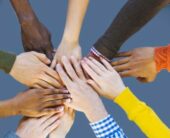Social Isolation therapists in Chino, California CA
We are proud to feature top rated Social Isolation therapists in Chino, CA. We encourage you to review each profile to find your best match.
Stuart Kaplowitz / Serene Pathways Counseling
Counselor/Therapist, MFT
Having time to ourselves can be most valuable. If it is negatively impacting other parts of our lives, such as work or relationships, it may need to be addressed
31 Years Experience
In-Person in Chino, CA 91710
Online in Chino, California
Dr. David Shapiro
Psychologist, California Licensed Psychologist (License# PSY17495)
Humans are social animals. We are not the fastest animals nor the strongest, but one of our greatest strengths is that we are able work together and coordinate. People tend to be more emotionally healthy when they are connected to others. When cut off from social support people tend to not do as well in many areas of functioning. A variety of factors can result in isolation, including situational factors, as well as personal factors. Not everyone has the same social needs. Some people like to have one or two people very close to them, and others like to have a broad and active social life. As a clinician, taking into account people's relationships and social supports is a very important dimension in understanding what may be holding them back from thriving. Then understanding what is interfering with them having the relationships that would serve them well to have becomes another important step in the therapeutic process, and then this understanding can be used to support the client in taking the steps necessary to overcome those barriers. Quite often I help clients with this through what is called Interpersonal Psychotherapy, which involves making room in the therapy for hearing about the clients social interactions and relationships and then helping my clients to consider more effective ways of responding to others. Other times I help my clients become involved in new activities and communities which will provide opportunities to form new relationships.
24 Years Experience
In-Person Near Chino, CA
Online in Chino, California
Dr. Jen Bachtold
Psychologist, Ph.D., Certified Alcohol & Drug Counselor-II (CADC-II), Certified Clinical Trauma Professional, Specialist in Anger Management
Some goals for therapy when one is struggling with social isolation are:
• Reduce feelings of loneliness and isolation.
• Enhance social skills and confidence in interacting with others.
• Develop effective coping mechanisms to manage feelings of loneliness and stress.
• Improve overall mental health and quality of life.
• Foster meaningful relationships and social connections.
• Empower you with tools and strategies for long-term social engagement and well-being
9 Years Experience
Online in Chino, California (Online Only)
Jayeon Kim
Marriage and Family Therapist, LMFT 144461, MA, RYT-500
Social isolation can have a negative impact on your mental health. Let's explore the underlying causes of your social isolation and develop strategies to improve your relationships and social connections.
10 Years Experience
Online in Chino, California (Online Only)
Michael Myette Therapy
Licensed Clinical Social Worker, LCSW
I specialize in social isolation treatment
17 Years Experience
Online in Chino, California (Online Only)
Growth and Change Counseling
Marriage and Family Therapist, LMFT
We come along side you to support your growth in relational intelligence, which increases your own sense of control in social environments, thereby leading to a reduction in anxiety.
6 Years Experience
Online in Chino, California (Online Only)
Eric Olsen
Life Coach, PTSD, Trauma Triage, BSc Social Sciences, DoD Career Councilor, SARC, DAPA, Pre Licensed Human Intelligence / Psychology, Life Coach. | Professional Support: LSSBB, PgM, Bluestone PMP,
We work through your social isolation issues and help you get engaged in society again and thriving, living a full life. We address social-isolation, providing a supportive framework for individuals feeling disconnected from others. Services focus on identifying underlying causes of isolation, enhancing interpersonal skills, and fostering a sense of belonging. Through personalized sessions, I aim to empower clients to overcome barriers to social engagement, build meaningful relationships, and improve their overall social well-being.
15 Years Experience
Online in Chino, California (Online Only)
Elaine Skoulas
Marriage and Family Therapist, M.A., LMFT
The world has changed around you through technology and because of the pandemic. Becoming isolated is easier today than it has ever been. We can explore what a sense of community and different relationships mean to you to be able to best support your needs. You don't have to be alone anymore and connection is possible.
6 Years Experience
Online in Chino, California (Online Only)
PBA Psychology Group, Inc.
Psychologist, Clinical and Forensic Psychology
Social isolation can have a detrimental effect on mental health functioning. Understanding and reducing social isolation is an important step to improving mental health.
28 Years Experience
In-Person Near Chino, CA
Online in Chino, California








